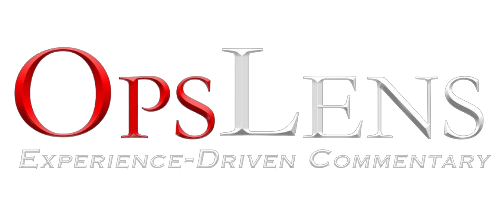French President Emmanuel Macron is urging the European Union (EU) to create a “true army” to counter the perceived threat of Russia, China, and “even the United States of America.” While the United States has long been close allies with Europe, the relationship has become strained under President Donald Trump. Commenting on this, Macron noted: “When I see President Trump announcing that he’s quitting a major disarmament treaty which was formed after the 1980s Euro-missile crisis that hit Europe, who is the main victim? Europe and its security.”
With Russia apparently in violation of the Intermediate-Range Nuclear Forces (INF) Treaty, President Trump has questioned why the United States should bother adhering to it. The treaty stipulates that no intermediary nukes will be placed in Europe, but it’s believed that Russia has such nukes in its Kaliningrad Oblast enclave on the Baltic Sea. This is sparking fears in Europe.
Macron argued that Europe could not protect Europeans without a true European army. Macron further noted that Europe could not “just” depend on the United States for its defense. The concept of a European command structure and EU army has been around for years but has largely languished. Now, Donald Trump’s rhetoric has Europeans looking more closely at their own defense.
Ironically, this is quite likely what President Trump wants. The president has been a vocal critic of Europe’s dependence on the United States and comparatively low investment in their militaries. President Trump has urged European nations to spend at least 2 percent of their GDP on defense spending.
Most European nations already agreed to such spending in past negotiations with President Barack Obama, but have been dragging their feet, according to critics. If Europe does indeed create a “true European army,” military spending would most likely increase.
France has emerged as the most vocal proponent of a unified military, but Germany has also voiced support for it. The European Commission has emphasized that the goal would be to increase defense capabilities, not to project force outside of Europe.
Under a European army, other European nations would likely submit or create military units that would then be put under a unified command structure. In theory, this would allow Europe to respond to military threats more quickly. As it stands now, individual European militaries would have to coordinate with one another to respond to any given situation. This takes time and increases the risks of problems emerging.
How likely is Europe to create a unified military structure? So far, most other European nations have exhibited a lackluster response. For one, the European Union itself is under strain, with Poland, Italy, and other countries increasingly under the influence of hard-right parties. Many of those on the hard right are already skeptical of the EU and unlikely to support expanding the Union’s control of their countries and resources.
Second, many European nations are already struggling to manage their budgets. While the U.S. economy is expanding at a healthy clip, Europe continues to struggle with relatively high unemployment and slow economic growth. Many European countries are also deeply indebted. This makes increased military spending more difficult and costly to acheive.
Still, Russia has been building up its military in and around Europe, raising concerns that the nation could become more aggressive. Germany, France, and other nations are increasingly wary of Russia and its intentions. And with President Trump calling NATO into question, Europe may not have as reliable a partner should a confrontation with Russia occur.
The fate of any European army may well come down to the next few election cycles in Europe. If hard-right parties continue to gain grown and take over governments, expect Europe to be pulled further apart. If pro-EU parties can restore momentum, Europe will be more likely to start unifying militarily.
